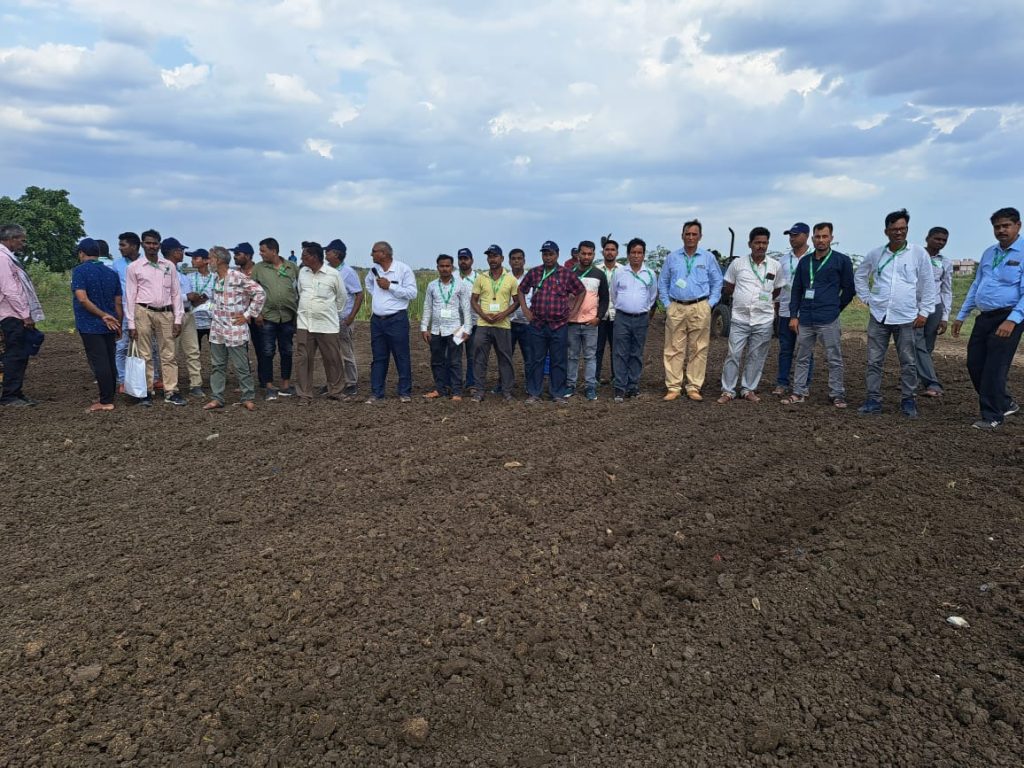Farmers and Service Providers from Odisa on a DSR exposure visit to Bapatla, Andhra Pradesh
An exposure visit was organized aimed at spreading awareness and building the capacity of farmers and service providers (SPs) on mechanized direct seeded rice (DSR). 32 individual farmers and SPs from six districts (Bargarh, Bhadrak, Ganjam, Kalahandi, Mayurbhanj and Puri) of Odisha, along with five project field staff, visited Bapatla district of Andhra Pradesh between August 3–8, 2023, for the exposure program. The visit was facilitated by the IRRI-DSR-Odisha and the Cereal Systems Initiative for South Asia (CSISA) projects in collaboration with Prananadhaara, an NGO working with farmers.

The team from Praanadhaara headed by Pundarikakshudu Kurra took the visitors to a large area (~54000 acres) of mechanized DSR in Bapatla district besides organizing field visits to bigger DSR-clusters at multiple locations. In Bapatla, they were also exposed to sophisticated machinery being used for DSR and other crops.
Information and practical experience on different aspects of mechanised DSR technology – seed-to-seed – including demand-driven aggregation, timely preparedness, input management, moisture conservation, land preparation, levelling, planking, seeding, integrated weed management, fertilizer application, water management, insect-pest (rodents)/disease management, harvesting, threshing and marketing were informed about to the participants.
Interaction of the visiting team with the local farmers/DSR adopters resulted in useful learning about seed-to-seed operations, machinery, agronomy, service and scaling strategies. Practical demonstrations on mechanical weeding, herbicide (pre-emergence and post-emergence) spraying, fertilizer, and other pesticide applications using small and narrow-wheeled Kubota tractors (27 H.P.) were very informative and helpful for the participants. Wet direct seeding of rice in rows through tractor was also found feasible and practically doable. Crust formation and poor germination are quite common in dry direct seeded rice fields, and an appropriate crust-breaking tool was also demonstrated to participants.
All field operations were accomplished over a large area in time, ending in a healthy and robust DSR-crop stand at these demonstration sites. Significant savings in resources (water, labour, energy, cost) along with improved soil and environmental health appeared very convincing to the participants. Most farmers/SPs believed that tractor-mounted mechanical weeding and herbicide spraying need to be introduced in Odisha as weeds remain a common and complex problem for DSR practice.
Dr. Ashok Kumar CSISA Odisha hub lead, who coordinated this visit, observed the need for entrepreneurship development, mutual understanding and investment of collective efforts to replicate similar success in Odisha. Based on last year’s similar exposure visit, it was realized that once farmers and SPs are involved and exposed to the best practices, “the scaling pathway becomes more easier and faster”, he concluded.
Tags: mechanization, Odisha
